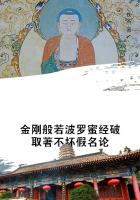And here I ought to close this paper, and would close it, if there were no apprehension that more injurious consequences than any merely personal to myself might follow the censures systematically cast upon me for doing what, in my view of duty, I could not forbear. The resolutions promise to support me in every constitutional and lawful measure to suppress the rebellion; and I have not knowingly employed, nor shall knowingly employ, any other. But the meeting, by their resolutions, assert and argue that certain military arrests, and proceedings following them, for which I am ultimately responsible, are unconstitutional. I think they are not. The resolutions quote from the Constitution the definition of treason, and also the limiting safeguards and guarantees therein provided for the citizen on trial for treason, and on his being held to answer for capital or otherwise infamous crimes, and in criminal prosecutions his right to a speedy and public trial by an impartial jury. They proceed to resolve "that these safeguards of the rights of the citizen against the pretensions of arbitrary power were intended more especially for his protection in times of civil commotion." And, apparently to demonstrate the proposition, the resolutions proceed: "They were secured substantially to the English people after years of protracted civil war, and were adopted into our Constitution at the close of the Revolution." Would not the demonstration have been better if it could have been truly said that these safeguards had been adopted and applied during the civil wars and during our Revolution, instead of after the one and at the close of the other? I too am devotedly for them after civil war, and before Civil war, and at all times, "except when, in cases of rebellion or invasion, the public safety may require" their suspension. The resolutions proceed to tell us that these safeguards "have stood the test of seventy-six years of trial under our republican system, under circumstances which show that, while they constitute the foundation of all free government, they are the elements of the enduring stability of the republic." No one denies that they have so stood the test up to the beginning of the present rebellion, if we except a certain occurrence at New Orleans hereafter to be mentioned; nor does any one question that they will stand the same test much longer after the rebellion closes. But these provisions of the Constitution have no application to the case we have in hand, because the arrests complained of were not made for treason--that is, not for the treason defined in the Constitution, and upon the conviction of which the punishment is death--nor yet were they made to hold persons to answer for any capital or otherwise infamous crimes; nor were the proceedings following, in any constitutional or legal sense, "criminal prosecutions." The arrests were made on totally different grounds, and the proceedings following accorded with the grounds of the arrests. Let us consider the real case with which we are dealing, and apply to it the parts of the Constitution plainly made for such cases.
同类推荐
热门推荐
時光裡的秘密
陪伴是最長情的告白。情不知所起,一往而深。所有的深愛都是難以言說的深情。所有的,都成了掩藏在時光裡的秘密。蘇染就是寧子揚眉間的那一點朱砂。從十七到二十七,他陪著她一起走過了她人生裡最美的一個十年。他心生感激,也慶幸,在蘇染人生最美的十年裡,陪她從少女時代走向成熟的那最美好的時光的那個人一直都是他。他一直都在,不遠不近,不棄不離。不是風動,不是幡動,而是他的心在動。是從什麼時候愛上的她,他真的已經無從記起。只是等他發現時,她就在他的心裡生根,發芽,長成了參天大樹。再也由不得他自己了。也許她不是最好的,也不是沒有遇見更好的,只是遇到她了,他再不需要更好的了。除她之外,所有的人都是他的將就。















